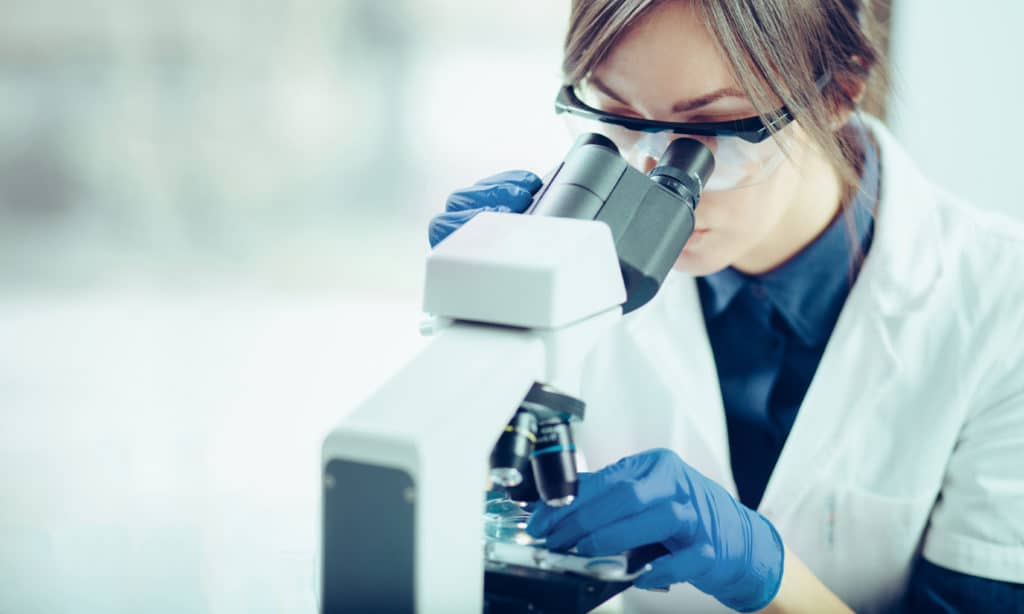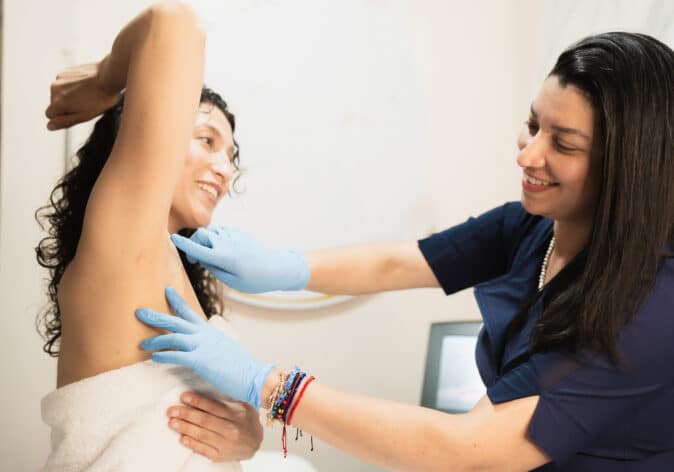The Importance Of Genetics In Breast Cancer
An individual’s genetic makeup is becoming increasingly important in how certain breast cancers are treated.
New treatments and prevention strategies are now being tailored to specific genetic make ups, especially those who have a known genetic mutation.
Associate Professor Judy Kirk is a Cancer Geneticist at the Familiar Cancer Service at Westmead Hospital.
She says there are two ways genetics will become more important in cancer genetic testing and personalising treatment.
“When we talk about genetic testing, sometimes we are talking about testing of the tumour to find the genetic changes in the tumour that have caused that cancer and to target the therapy for that cancer.”
“So that’s quite different to a fault in the gene that’s in every single cell in the blood that causes a higher risk of cancer.”
“Our understanding of both of those aspects of genetic testing is changing over time.”
She said what researchers know about how genetics affects cancer risk and treatment, has come a long way over the past couple of decades.
“We know when our clinic first started in 1994, we didn’t really know much.”
“We knew about two genes only at that point,” she said.
“We had very rudimentary testing, but it cost an awful lot of money and it took a long time to do.”
“Now the sequencing of these genes is much cheaper. So, it’s more available.”
She said now more funding and time is spent on interpreting the data found through testing.
“The more testing we do, the more we find changes in genes that are called unclassified variance.”
“They’re small changes that probably mean nothing but we’re not sure about that yet,” she said.
“The more genes you test the more you find and you can find in some studies, where they’ve tested lots of different genes in women with breast cancer, up to a third will have slight variations in genes that may or may not mean something.”
“So, there’s still uncertainty about some aspects of genetic testing. There’s a lot left to learn.”
Listen to the podcast
Cancer Geneticist Associate Professor Judy Kirk explains the role of genetics in breast cancer research and how this information will help inform future treatments.
Genetic Testing For Targeted Therapies
Associate Professor Kirk said that the information researchers already know about genetic abnormalities and mutations has helped to inform treatments in those with known BRCA1 and BRCA2 gene mutations.
“It’s already been shown that individuals who have a germline mutation or mutation in every single cell, a mutation in BRCA1 or BRCA2, certainly respond well to specific PARP inhibitors.”
“Now that also could be found by testing their tumour. Some people don’t have a mistake in every single cell, but there is a mistake in their tumour.”
“So, I think it’s going to be tumour testing that drives the targeted therapies.”
“So, I think it’s going to be tumour testing that drives the targeted therapies.”
Breast Cancer Trials currently has a clinical trial open for the prevention of breast cancer in women who have the BRCA-1 gene mutation.
You can find out more about BRCA-P and sign up for the BRCA-P mailing list here.
Support Us
Help us to change lives through breast cancer clinical trials research




